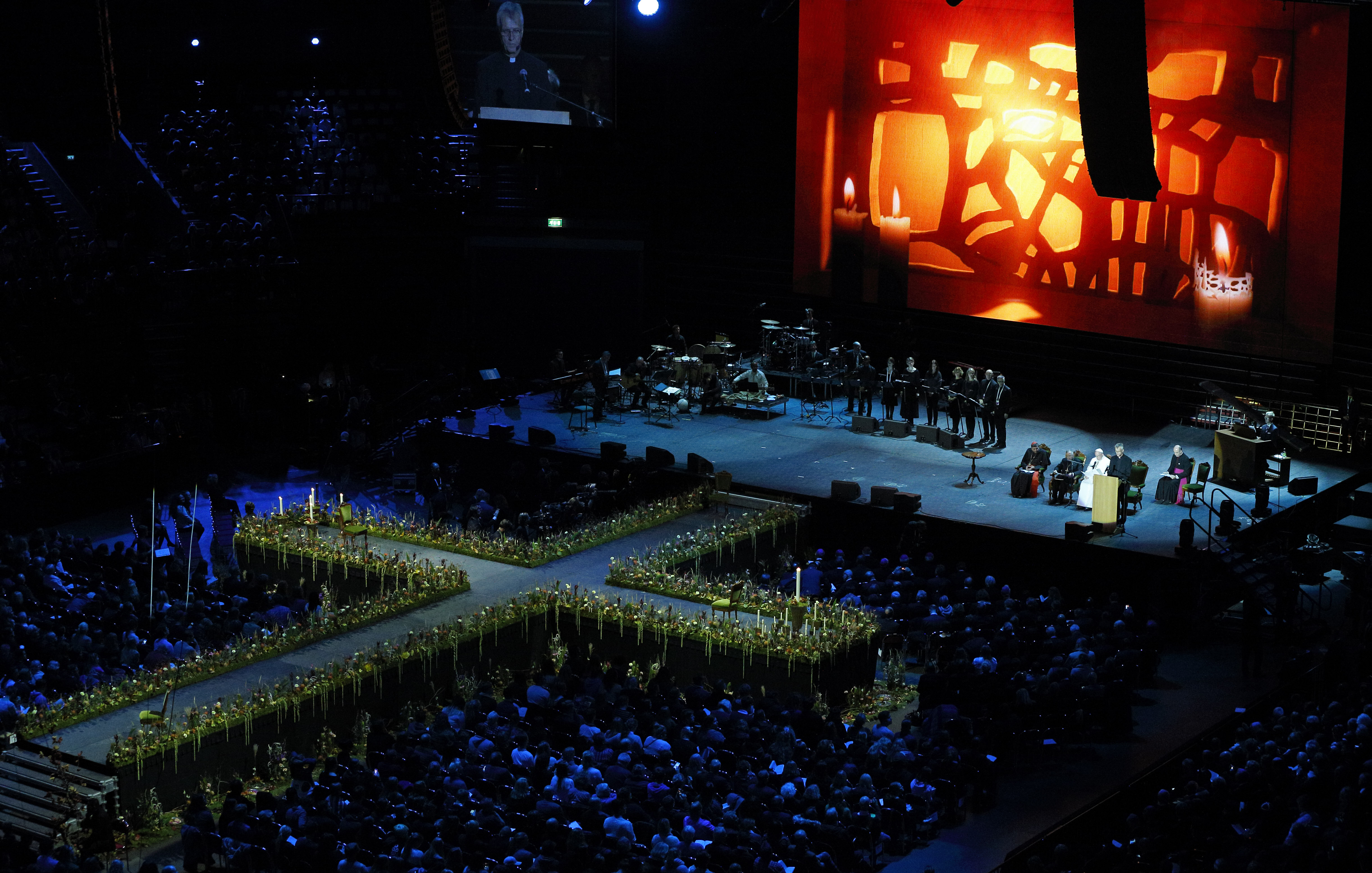 Pope Francis attends an event in Malmo, Sweden, commemorating the 500th anniversary of the Protestant Reformation. DePaul University's Center for World Catholicism and Intercultural Theology will host a conference on the Reformation and its lingering impact on Asia, Latin America and Africa. (CNS/Paul Haring)In 1517, Martin Luther launched the Protestant Reformation by nailing a proclamation to a church door in Wittenberg, Germany. Five hundred years later, speakers from India, Nigeria, Brazil, Chile and Sri Lanka will gather at DePaul University to address the lingering repercussions of the Reformation on Christianity, particularly in the global South.
Pope Francis attends an event in Malmo, Sweden, commemorating the 500th anniversary of the Protestant Reformation. DePaul University's Center for World Catholicism and Intercultural Theology will host a conference on the Reformation and its lingering impact on Asia, Latin America and Africa. (CNS/Paul Haring)In 1517, Martin Luther launched the Protestant Reformation by nailing a proclamation to a church door in Wittenberg, Germany. Five hundred years later, speakers from India, Nigeria, Brazil, Chile and Sri Lanka will gather at DePaul University to address the lingering repercussions of the Reformation on Christianity, particularly in the global South.
"Christians all over the world are using this anniversary to take stock of where we have come over the last five centuries," says William Cavanaugh, professor of Catholic Studies and director of the Center for World Catholicism and Intercultural Theology at DePaul.
The center will host its conference during World Catholicism Week, April 28-30, on DePaul's Lincoln Park Campus. Events will be held in the Student Center, 2250 N. Sheffield Ave. Though the conference is free and open to the public, registration is required.
"Over the last 50 years, Protestants and Catholics have taken important steps toward healing the divisions among Christians, but a lot of work remains to be done, especially in the global South, where there is often intense competition for adherents," Cavanaugh says.
Speakers will explore ecumenism - promoting unity among the world's Christian churches. Topics include grassroots competition and cooperation, theological resources for promoting solidarity, the official ecumenical dialogues sponsored by the churches, and the ecumenism of martyrdom.
"Most of the presenters come from the global South, and all have participated in and written about ecumenical relations there," Cavanaugh says.
Scheduled keynote speakers include:
- Teresa Okure, a prominent African Catholic theologian, will discuss Jesus' perspective of promoting unity among the world's Christian churches.
- Felix Wilfred, a scholar from India, will present on the future of ecumenism through the lens of postcolonial theories.
- Paul Murray of Durham University in the United Kingdom leads an international movement called Receptive Ecumenism. He will discuss formal ecumenism, receptive ecumenism and the diverse local churches of the global Catholic Communion.
"Greater ecumenical understanding has not just been an option but a requirement for Catholics since the Second Vatican Council in the 1960s," Cavanaugh says. "Catholics have been urged to seek the unity of Christians because oneness is an essential mark of Christ's church."
DePaul founded the Center for World Catholicism and Intercultural Theology in 2008 to produce research that will serve the church and the academy. To fulfill this mission, the center has paid special attention to the world church that has emerged since the Second Vatican Council and its growth in Africa, Asia and Latin America. While the focus has been on the present global communion of faith, the center also attends to historical, theological and cultural questions that will contribute to a fuller understanding of Catholicism and the dialogue of cultures today.